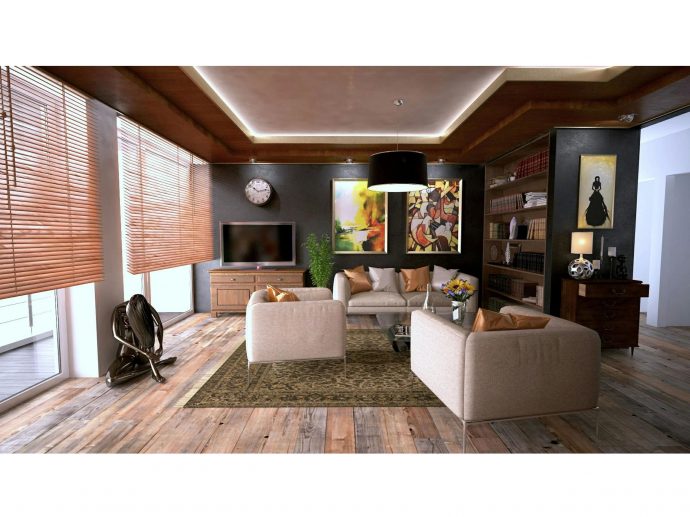Categories more
- Adventures (17)
- Arts / Collectables (15)
- Automotive (37)
- Aviation (11)
- Bath, Body, & Health (77)
- Children (6)
- Cigars / Spirits (32)
- Cuisine (16)
- Design/Architecture (22)
- Electronics (13)
- Entertainment (4)
- Event Planning (5)
- Fashion (46)
- Finance (9)
- Gifts / Misc (6)
- Home Decor (45)
- Jewelry (41)
- Pets (3)
- Philanthropy (1)
- Real Estate (16)
- Services (23)
- Sports / Golf (14)
- Vacation / Travel (60)
- Watches / Pens (15)
- Wines / Vines (24)
- Yachting / Boating (17)
Solid Ground: The Science Behind the Durability of Commercial Vinyl Flooring
Published
04/11/2024In the bustling corridors of commercial buildings, flooring durability isn’t just desired; it’s demanded. From heavy foot traffic to the relentless push and pull of office chairs, commercial floors are expected to withstand daily wear and tear while maintaining their aesthetic appeal. One flooring contender rises above the rest in meeting these challenges with unparalleled resilience: commercial LVT flooring.
But what is the secret behind commercial vinyl flooring's remarkable endurance? This question can only be answered by delving into the science behind its manufacturing and material composition. This exploration sheds light on its robust nature and positions vinyl flooring as a premier choice for commercial settings.
Material Marvel: Understanding Composition
At the core of commercial vinyl flooring's endurance is its composite construction. Primarily crafted from polyvinyl chloride (PVC), this synthetic resin is revered for resisting degradation and maintaining its structural integrity under stress.
Vinyl flooring's ingredients are meticulously chosen to enhance its durability. These include plasticizers for flexibility, stabilizers to prevent deterioration from light and heat, pigments for color consistency, and filler materials for additional strength.
Layers of Longevity
Commercial vinyl flooring often features multi-layer construction, contributing significantly to its toughness. On top lies a thin yet potent wear layer that acts as the first line of defense against scratches, scuffs, and stains. This transparent layer may incorporate a urethane coating for a more resilient finish.
Beneath this protective sheath lies the vinyl core, which gives the flooring its distinct durability and comfort underfoot. Further layers, such as a fiberglass support layer, add dimensional stability, preventing the flooring from buckling or warping. The bottommost layer typically includes a backing material that provides additional rigidity and helps with shock absorption.
The Impact of Thickness and Texture
Thickness plays an overarching role in the durability of vinyl commercial flooring, with thicker options offering greater resistance to damage over time. However, thin vinyl flooring can be durable with a quality wear layer. To extend their lifespan, some products may include enhanced coatings imbued with ceramic or other hard substances.
Texture is not just a design feature but also has functional benefits. Flooring with textured surfaces can better hide minor damages and provide additional traction, reducing the risk of slips and falls in high-traffic areas—an essential consideration in commercial environments.
Resilience to Environmental Stressors
Commercial vinyl flooring's exceptional durability is also due to its resistance to diverse environmental factors. It doesn't swell or contract significantly with changes in moisture or temperature, making it an excellent choice for spaces with variable conditions.
Additionally, vinyl doesn't succumb to mold and mildew, which can undermine the integrity of many other flooring materials. Vinyl is a sturdy choice for a long life span, and its resilience keeps it looking pristine without excessive floor cleaning.
Sustainable and Safe
The benefits of commercial vinyl flooring extend beyond its physical robustness. Many manufacturers now produce vinyl flooring using eco-friendly processes that recycle materials, curbing its environmental impact. This modern approach to vinyl production doesn't compromise the product's strength but eases the ecological conscience of businesses seeking sustainable solutions.
Vinyl is also a non-porous material, preventing spills and stains from penetrating the surface. This makes LVT flooring easy to clean and disinfect. In commercial settings, this hygienic facet is pivotal for maintaining healthy environments, especially in healthcare and food service industries.
Innovation in Installation
Another aspect contributing to the durability of commercial vinyl flooring is the range of installation options available. Some types are glue-down, affixing firmly to the substrate, while others utilize a click-and-lock mechanism that can float above the existing floor.
Each method provides stability and endurance, with some offering unique benefits like ease of replacement or enhanced acoustic properties. In business, quick renovations matter to prevent losses.
Cost-Effective Durability
For businesses, upfront cost is always a consideration. Commercial vinyl flooring is a wise choice for its lasting quality and cost-effectiveness. It offers the most value for money.
Compared to other high-endurance flooring options like natural stone or hardwood, vinyl offers similar benefits at a fraction of the cost. Its longevity ensures that replacement cycles are less frequent, resulting in lower long-term maintenance and replacement costs.
Conclusion
Exploring the science behind durable commercial vinyl flooring reveals a product designed to outlast and outperform. With its quality materials, layering, and resistance to environmental factors, vinyl flooring is a smart choice for various businesses. It's versatile in healthcare and retail settings, showcasing the innovation of modern material science. In essence, commercial vinyl flooring blends durability, science, and style, offering a cost-effective solution for global businesses. Choose vinyl flooring for a lasting, aesthetic, and practical investment.















